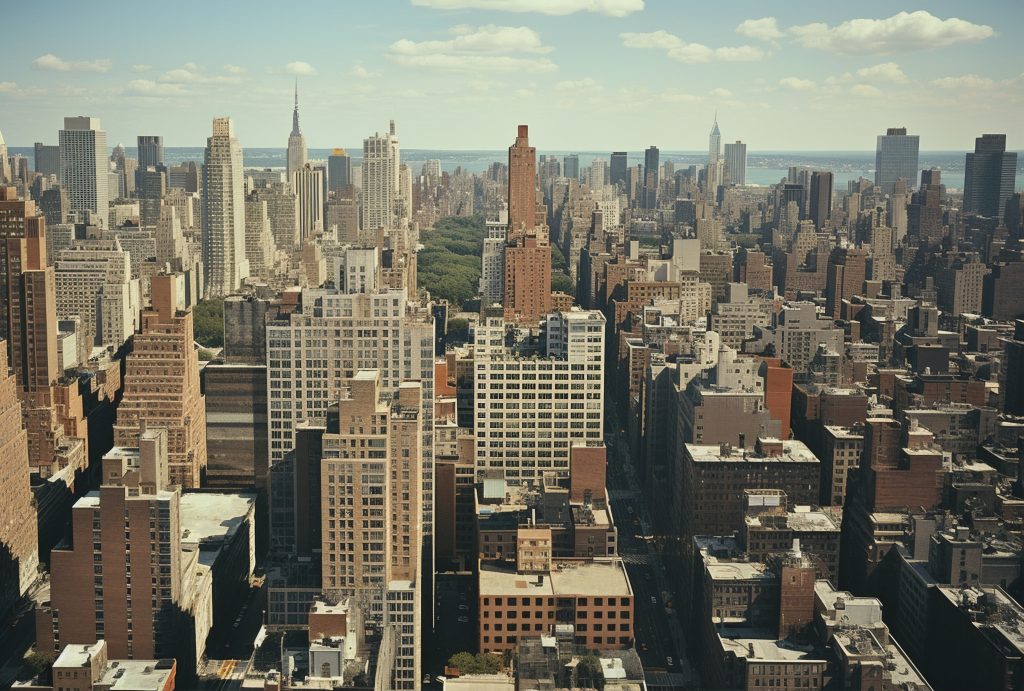
Designed by Freepik
MOHAMED FARGHALY
mfarghaly@queensledger.com
In a significant boost to its climate goals, New York City has secured a federal grant of $19.9 million to support its ambitious carbon emission reduction targets for large buildings. The funding, announced today by the New York City Department of Buildings (DOB), will assist in implementing Local Law 97 (LL97), the city’s leading program aimed at reducing climate-change related carbon emissions from its largest buildings.
The grant was awarded by the U.S. Department of Energy (DOE) and is a result of a joint application by the DOB, New York University Marron Institute of Urban Management (NYU Marron), and the Urban Green Council (UGC). These organizations have been key advocates of LL97 since its inception in 2019.
“Meeting the climate crisis head-on requires all of us– but like most ‘worth it’ things, reducing carbon emissions isn’t always easy. Which is why we are so grateful to President Biden and the Department of Energy team for granting our city key funds that will help us help New Yorkers do their part to implement Local Law 97,” said Deputy Mayor for Operations Meera Joshi. “The Biden Administration’s legacy-defining IRA and BIL programs will help us supercharge the transition to electric vehicles, deliver parkland, reconnect communities torn apart by legacy infrastructure and more.”
The grant will support Local Law 97 (LL97) through a range of initiatives designed to advance sustainability and compliance. It will expand outreach and educational guidance for residential multifamily property owners in disadvantaged communities, enhance existing public training programs, and promote workforce training in green technology to develop a larger pool of sustainability professionals for retrofit projects. Additionally, the funding will facilitate the creation of automated audit tools to help building owners meet compliance requirements, establish a citywide database to track decarbonization progress, and expand publicly available mapping tools to showcase the city’s emissions reduction and energy efficiency efforts. The grant will also increase staffing at the Department of Buildings’ Sustainability Bureau to bolster outreach and enforcement efforts.
New York City is one of just 19 jurisdictions selected by the Department of Energy’s Office of State and Community Energy Programs (SCEP) for this round of funding, receiving the highest allocation given to any single city. The grants, provided by the Inflation Reduction Act (IRA) passed in 2022, are intended to assist local governments in implementing cutting-edge, energy-efficient building codes that enhance resilience and sustainability across the nation.
“The full implementation of LL97 is moving ahead and this welcome funding from the federal government will boost the important work at our Sustainability Bureau,” said Buildings Commissioner Jimmy Oddo. “The Adams administration has been committed to a smart, considered rollout of these emission caps, helping building owners achieve their sustainability goals both in the short-term and leading up to 2050.”
The funding will not only support LL97 implementation across the five boroughs but also help develop a comprehensive emission reduction playbook that other jurisdictions can replicate. NYU Marron will manage the development of data-driven tools, while UGC will oversee efforts to improve industry outreach and workforce training.
Local Law 97 requires around 40,000 of New York City’s largest buildings to meet progressively lower greenhouse gas emission limits or face penalties. To comply, buildings must undergo energy efficiency retrofits and reduce carbon emissions from their operations. Since the law’s enactment in 2019, the city has conducted extensive outreach to property owners, including numerous information sessions.
Recent federal legislation, including the Bipartisan Infrastructure Law and the Inflation Reduction Act, has made unprecedented amounts of funding available for infrastructure projects. Recognizing this opportunity, Mayor Adams established the Federal Infrastructure Funding Task Force, led by Deputy Mayor Joshi, to evaluate and secure competitive grants. The city has so far received over $850 million in federal infrastructure grants.
“With just nine months to go before the first LL97 emissions report filing deadline, it is more important than ever that DOB has the resources needed for a robust implementation of the nation’s leading building emissions reduction effort,” Laura Popa, Deputy Commissioner for Sustainability at DOB said. “Thank you to the DOE for this federal funding, and to our partners at NYU Marron and UGC. We will be able to create new tools that will assist building owners as they work to decarbonize their properties, while also showing other cities how they can replicate our successes in their own backyards.”
Elijah Hutchinson, Executive Director of the Mayor’s Office of Climate & Environmental Justice, commented on the act.
“New York City is leading the way with its Climate Mobilization Act and this funding will help us reach buildings in environmental justice areas, promote workforce training in the green economy, create a critical database resource for building owners, and expand mapping tools so the public can track our historic progress. Together these programs advance a just transition and help our city bring everyone along to a clean and healthy future.”
John Mandyck, CEO of UGC, emphasized the importance of the project.
“Education and training are the bedrock for any change, especially decarbonization,” Mandyck said. “We’re proud that this award will enable Urban Green to reach thousands of New Yorkers in the communities that need the most help to decarbonize buildings, with access to the knowledge, training, guides, and courses to accelerate compliance with Local Law 97.”
Constantine E. Kontokosta, PhD, Director of Civic Analytics and Associate Professor at NYU Marron also weighed in on the matter.
“The urgency of climate change necessitates new approaches to understand patterns of energy use and carbon emissions in the urban built environment,” Kontokosta said. “Through this grant and our exciting partnership with DOB and Urban Green Council, we will be able to develop much-needed analytical tools to support the implementation of LL97 and data-driven decision-making for climate action and environmental justice.”



